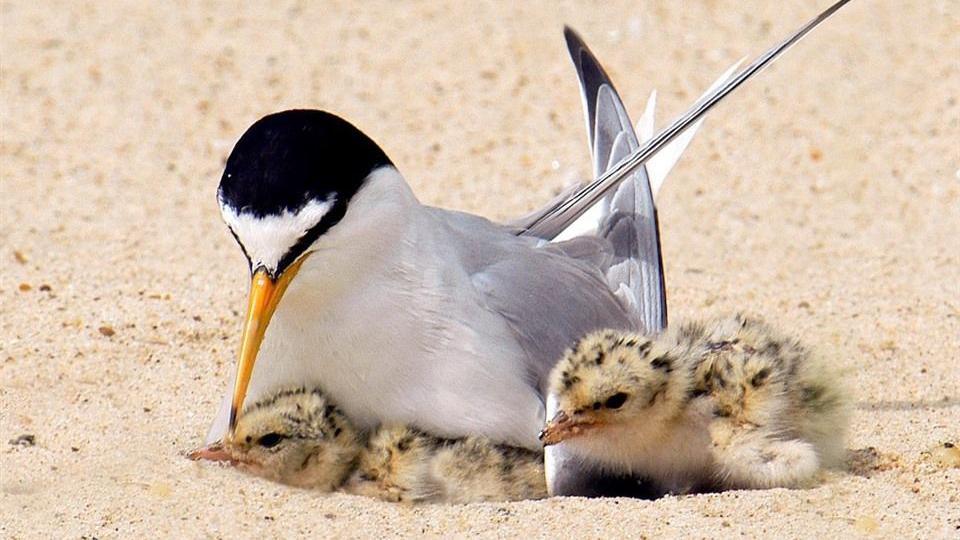Fourth successful breeding season for little terns
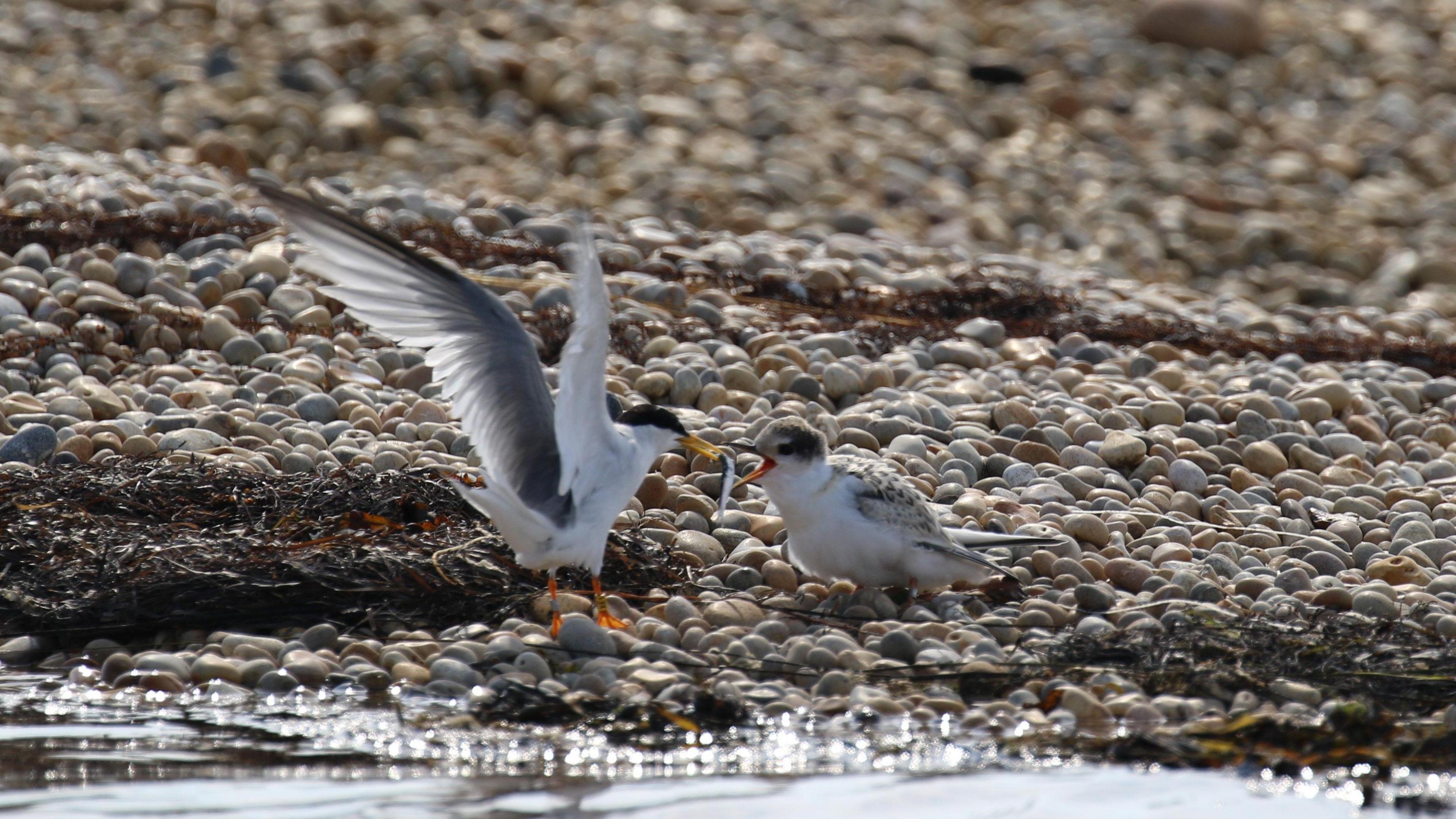
The colony on Chesil Beach is the last of its kind in south west England
- Published
Conservationists are celebrating the fourth successful breeding season for the UK's smallest and most threatened seabird.
The Chesil Little Tern Recovery Project said this summer more than 39 chicks had fledged on Chesil Beach in Dorset, up from three in 2021.
The colony is the last of its kind in south west England and the RSBP said the birds had suffered a 39% decline since the 1980s, due to factors such as a loss of safe habitats.
The project recorded a total of 61 nests, with an estimated 55 breeding pairs.
The charity hopes this year's results will maintain the upward trend in the bird's population since 2009.
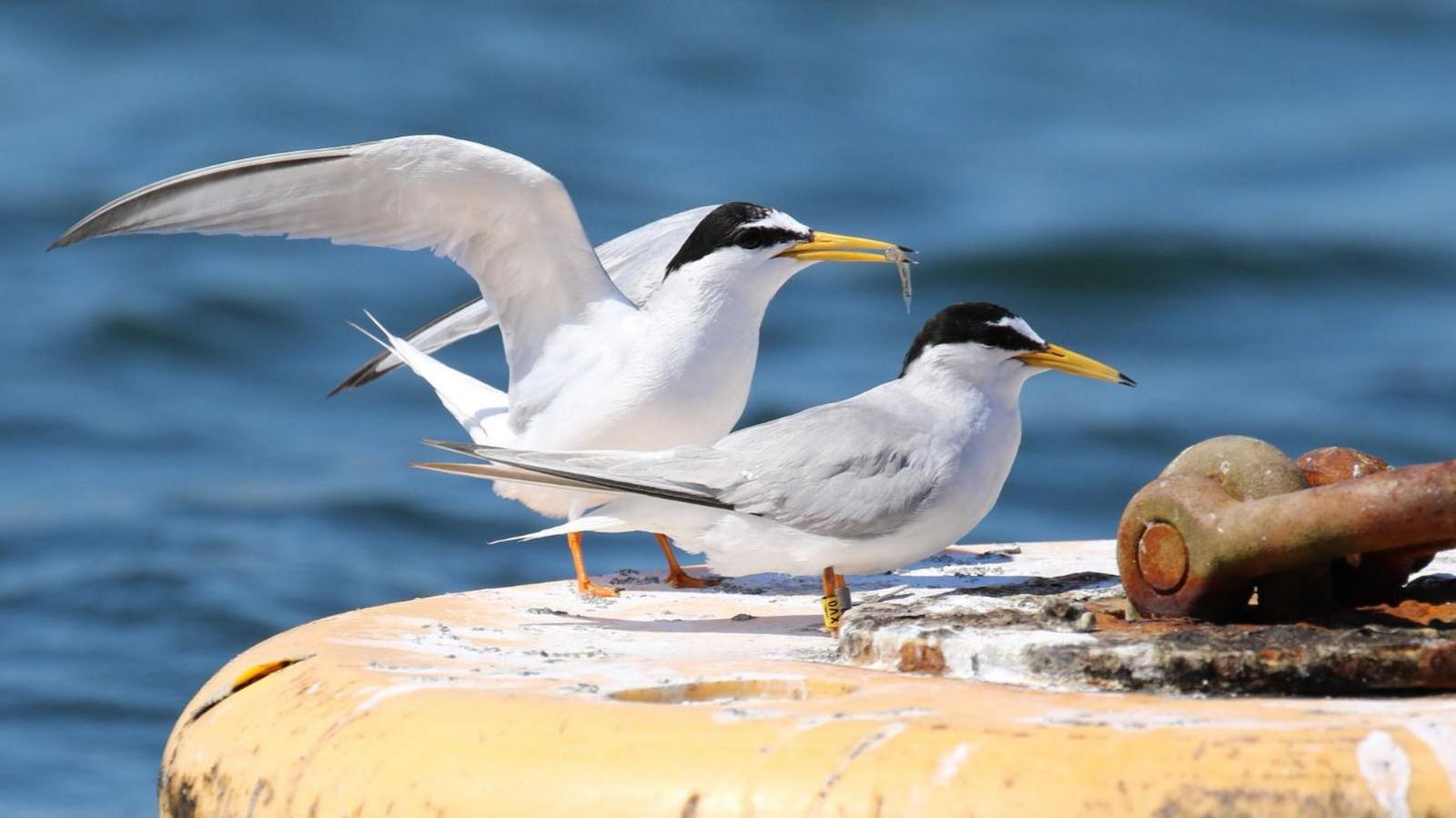
The little tern weighs no more than a tennis ball but travels thousands of miles to Africa each year to lay its eggs
The project is led by the RSPB, in partnership with the Crown Estate, Dorset Council, Portland Court Leet, Chesil & Fleet Nature Reserve, Dorset Wildlife Trust, and Natural England.
Volunteers said the chicks were so well camouflaged that more might have fledged unnoticed.
The little tern has a black cap, a distinctive white forehead, and a yellow bill with a black tip.
It weighs no more than a tennis ball, at about 40 to 60g.
They fly from West Africa each April to lay their eggs and raise their young on Chesil Beach, as well as on Norfolk's beaches.
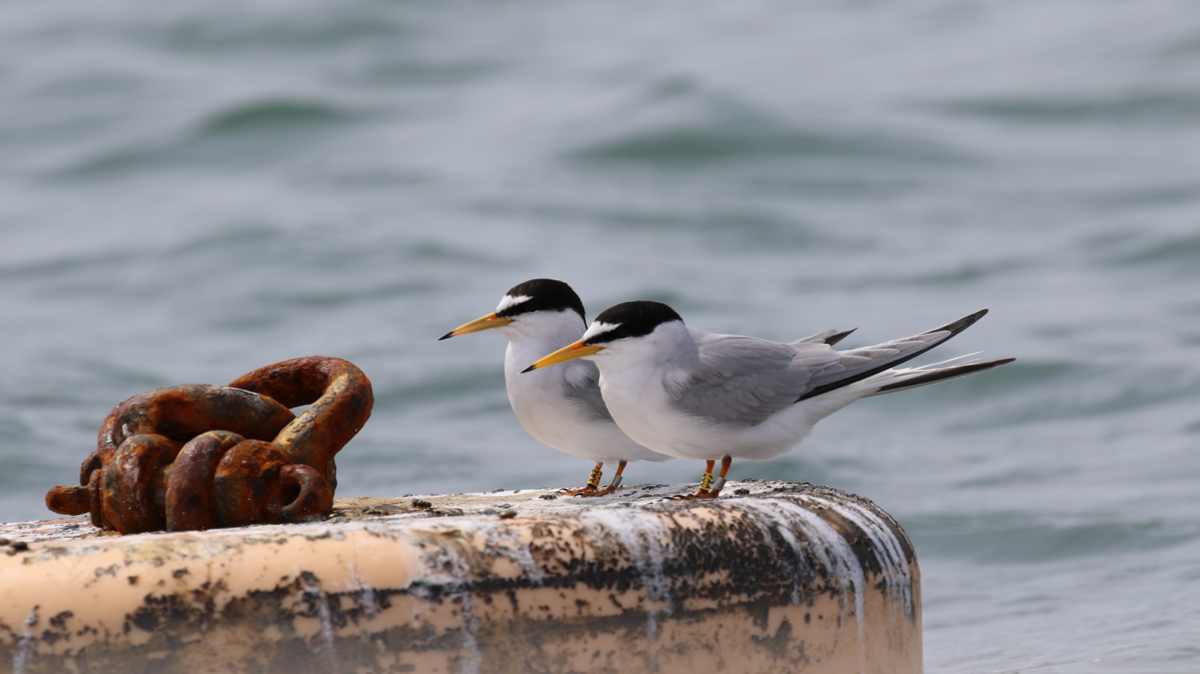
Project volunteers paised the birds' "fiery chattering" and "superb flying techniques"
Volunteer Mary Stevens said that despite her "self-imposed 6am slog up and over Chesil beach three times a week" the birds' "fiery chattering, superb flying techniques and determination to succeed in breeding was always worth it".
The RSPB said the conservation efforts resulted in a 6.7% increase in numbers in England since 2019.
The charity said it demonstrated how effective nest protection schemes could be when organisations and local communities work together.
Get in touch
Do you have a story BBC Dorset should cover?
You can follow BBC Dorset on Facebook, external, X (Twitter), external, or Instagram, external.
- Published14 October
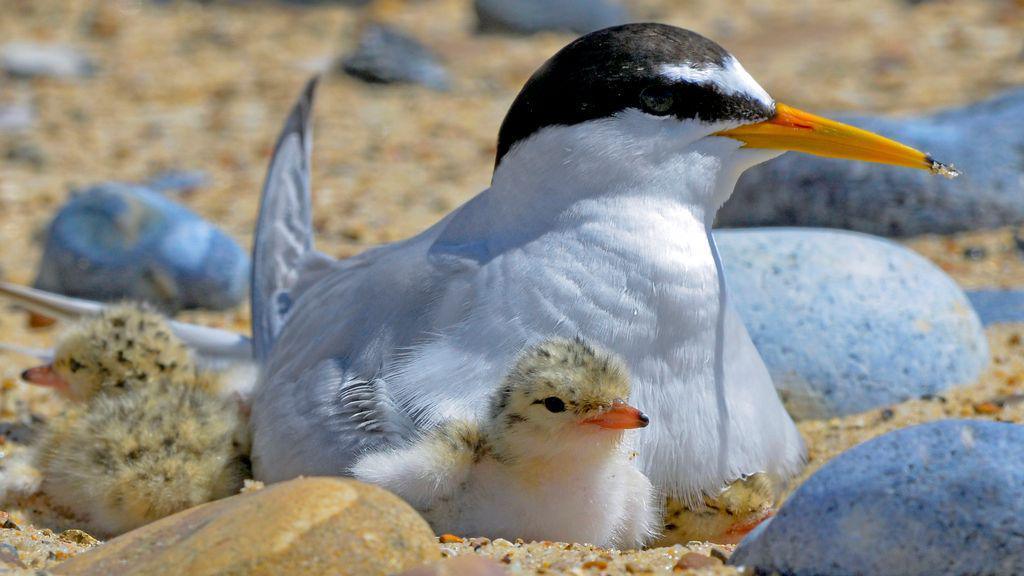
- Published19 August 2024
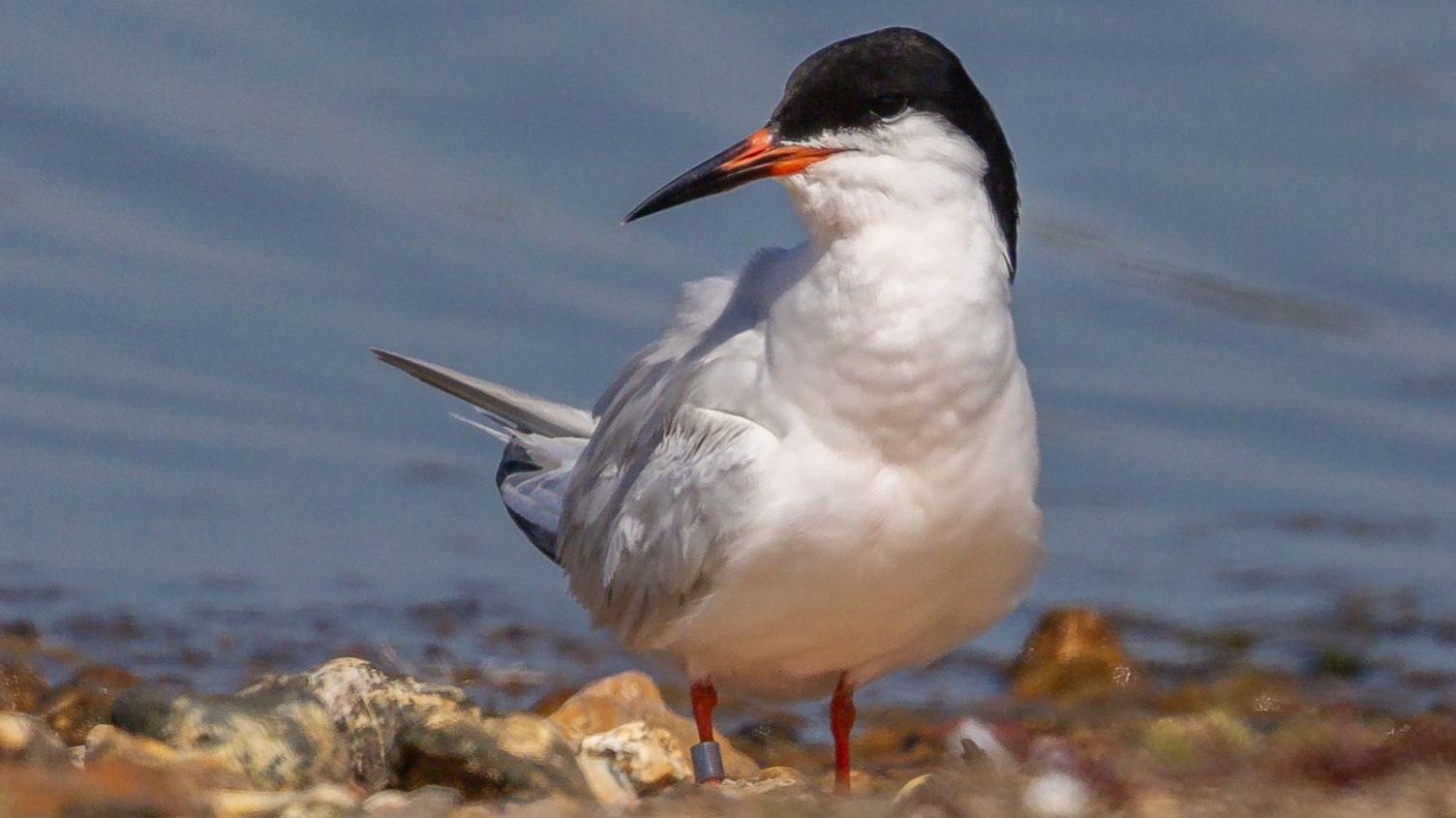
- Published27 July 2024
